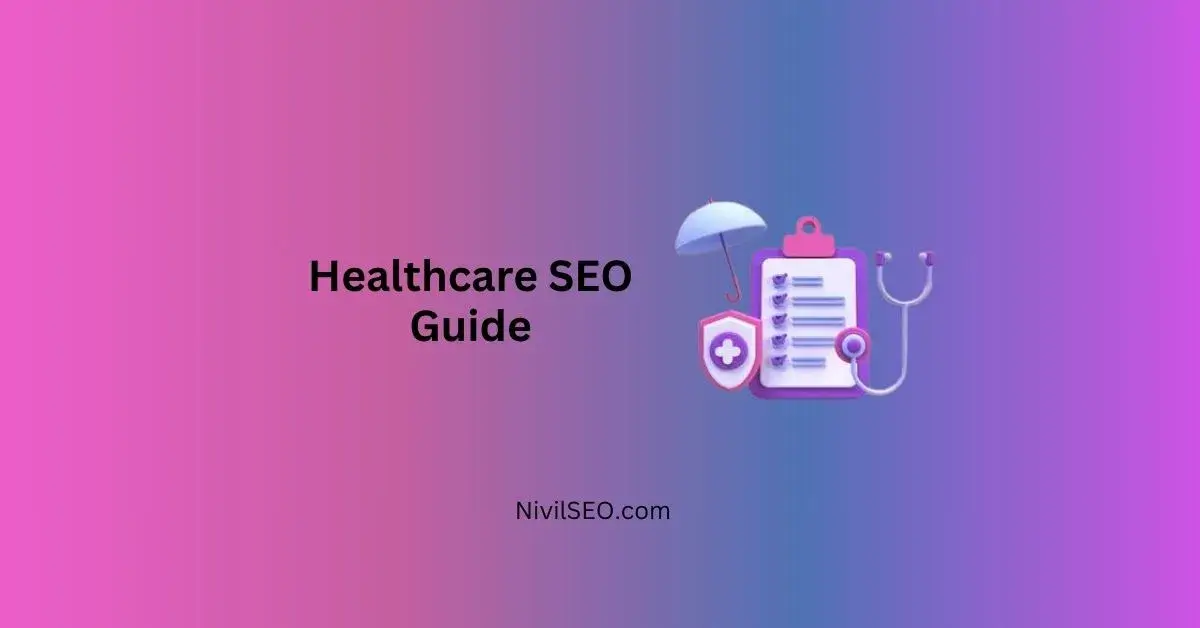In today’s digital age, patients are searching for healthcare providers online more than ever. To be seen, a strong SEO strategy is crucial for your healthcare website. By ranking higher in Google Search Results for Healthcare Websites, you can significantly boost your visibility, attract new patients, and solidify your practice as a trusted source of medical information.
Nivilseo, a leading SEO Expert Dubai, understands the unique challenges faced by healthcare providers in the digital landscape. This guide equips you with the top SEO tactics specifically tailored to propel your healthcare website to the top of Google search results.
1. Keyword Research & Content Strategy:
Understanding Patient Intent: The foundation of a successful healthcare SEO strategy lies in understanding what your target audience is searching for. Conduct thorough keyword research to identify relevant search terms with high search volume and low competition. Focus on keywords that reflect the services you offer, patient conditions you treat, and your location. Consider including long-tail keywords that target specific patient concerns (e.g., “pediatric dermatologist near me”).
Become a Credible Source: Develop a content strategy that positions you as a trusted authority in your field. Create informative blog posts addressing common patient queries, preventative care tips, and explanations of medical procedures. Publish high-quality articles on various health topics relevant to your specialties. Ensure your content is medically accurate, up-to-date, and written in a clear, concise manner for easy patient comprehension.
Optimize for Local Search: If you have a brick-and-mortar location, local SEO is essential. Optimize your Google My Business listing with accurate information, including your address, phone number, operating hours, and high-quality photos of your practice. Encourage patients to leave positive reviews, as these significantly influence local search rankings.
2. Website Optimization:
Technical SEO Foundation: Ensure your website is mobile-friendly, has a fast loading speed, and a user-friendly interface. This is crucial, as many patients use smartphones and tablets to search for healthcare providers. Implement a secure connection (HTTPS) and a well-structured sitemap for search engines to crawl and index your website effectively.
On-Page Optimization: Optimize your website’s title tags, meta descriptions, and header tags with relevant keywords. Include internal linking within your website, directing patients to related content and service pages.
3. Building Trust & Authority:
Backlinks from Credible Sources: Backlinks are links from other websites pointing to yours. Earning backlinks from high-authority medical websites, local health directories, or patient review platforms significantly improves your website’s ranking and establishes trust with search engines and potential patients.
4. Patient Engagement & Reviews:
Encourage Patient Interaction: Create opportunities for patient engagement on your website. Include interactive features like appointment scheduling forms, symptom checkers, or live chat options. Encourage patients to leave positive reviews on your Google My Business listing and other relevant platforms. Respond promptly and professionally to both positive and negative reviews, demonstrating your commitment to patient satisfaction.
5. Mobile-First Approach:
Prioritize Mobile Friendliness: With the increasing use of smartphones and tablets, a mobile-first SEO approach is crucial. Ensure your website displays seamlessly across all devices and offers a smooth user experience for mobile users searching for healthcare providers on the go.
6. Social Media Marketing:
Leverage Social Media Platforms: Maintain a strong presence on social media platforms like Facebook, Twitter, and Instagram. Share informative content, health tips, and updates from your practice. Engage with patients by responding to comments and messages promptly. Partner with local influencers in the healthcare space to reach a broader audience.
7. Compliance & Regulations:
Adhere to HIPAA Guidelines: Healthcare websites are subject to specific regulations regarding patient privacy. Ensure your website complies with Health Insurance Portability and Accountability Act (HIPAA) regulations by implementing appropriate data security measures.
8. Content Quality & Expertise:
Prioritize Medical Accuracy: The content on your healthcare website must be medically accurate and up-to-date. Collaborate with doctors or licensed healthcare professionals to ensure your content adheres to the highest medical standards.
9. Analytics & Tracking:
Measure Your Progress: Utilize website analytics tools like Google Analytics to track your website traffic, user behavior, and keyword rankings. Analyze the data to identify what’s working and what needs improvement in your SEO strategy.
10. Partner with an SEO Expert:
Nivilseo: Your SEO Partner: The world of SEO is constantly evolving. Partnering with an experienced SEO Expert Dubai like Nivilseo can help you develop a comprehensive SEO strategy tailored to your specific healthcare practice. Our team of SEO specialists stays updated on the latest Google algorithm updates and industry










